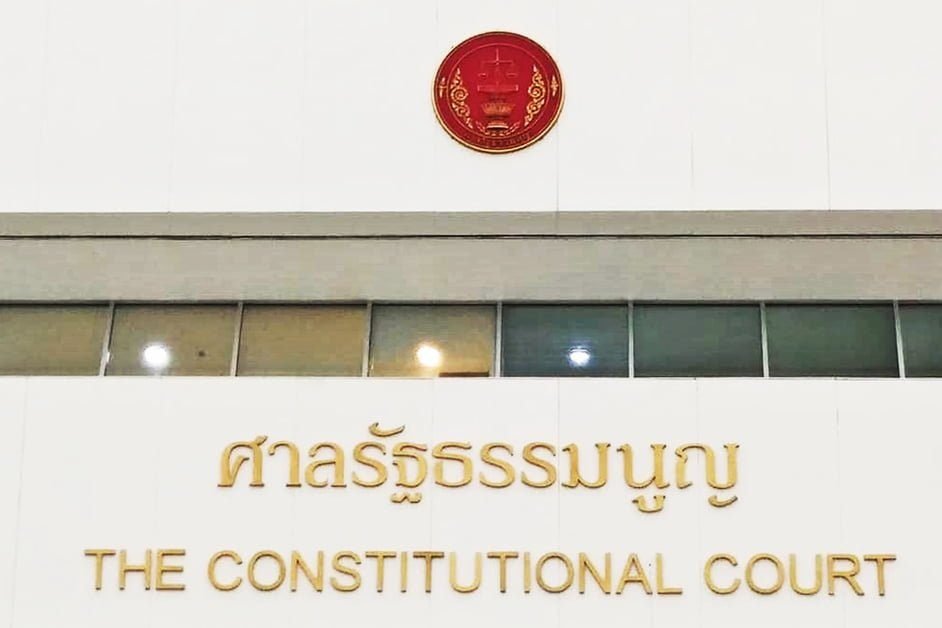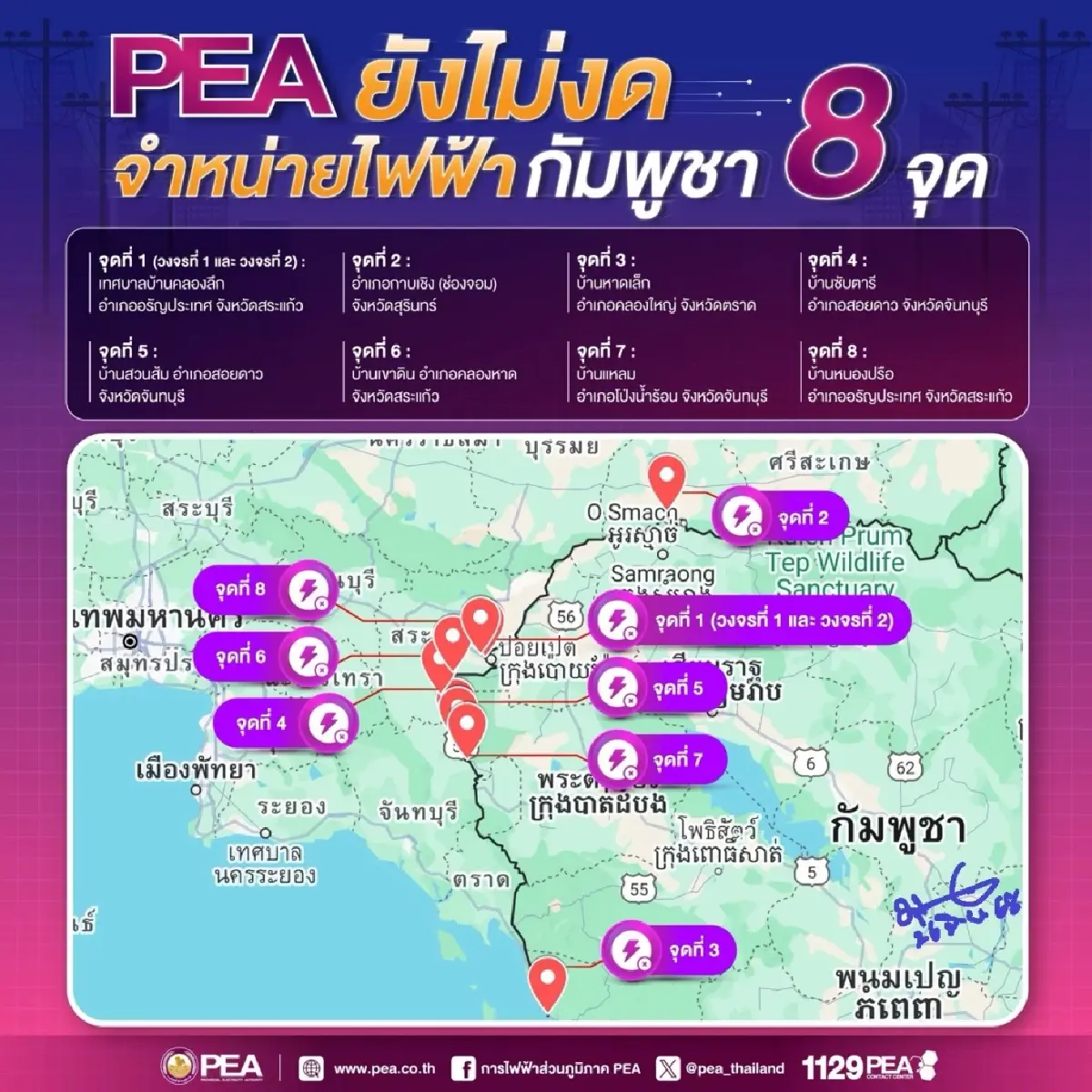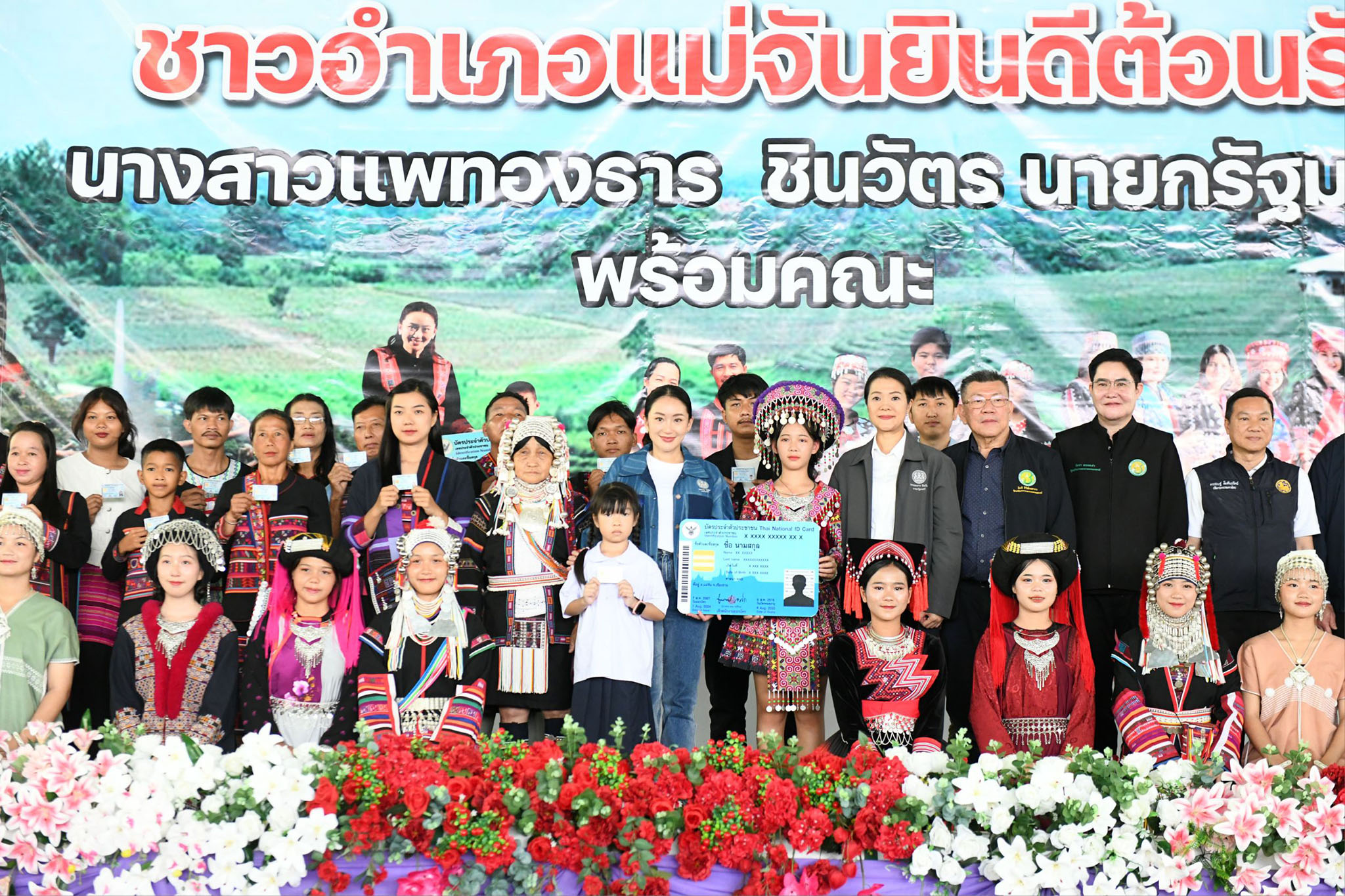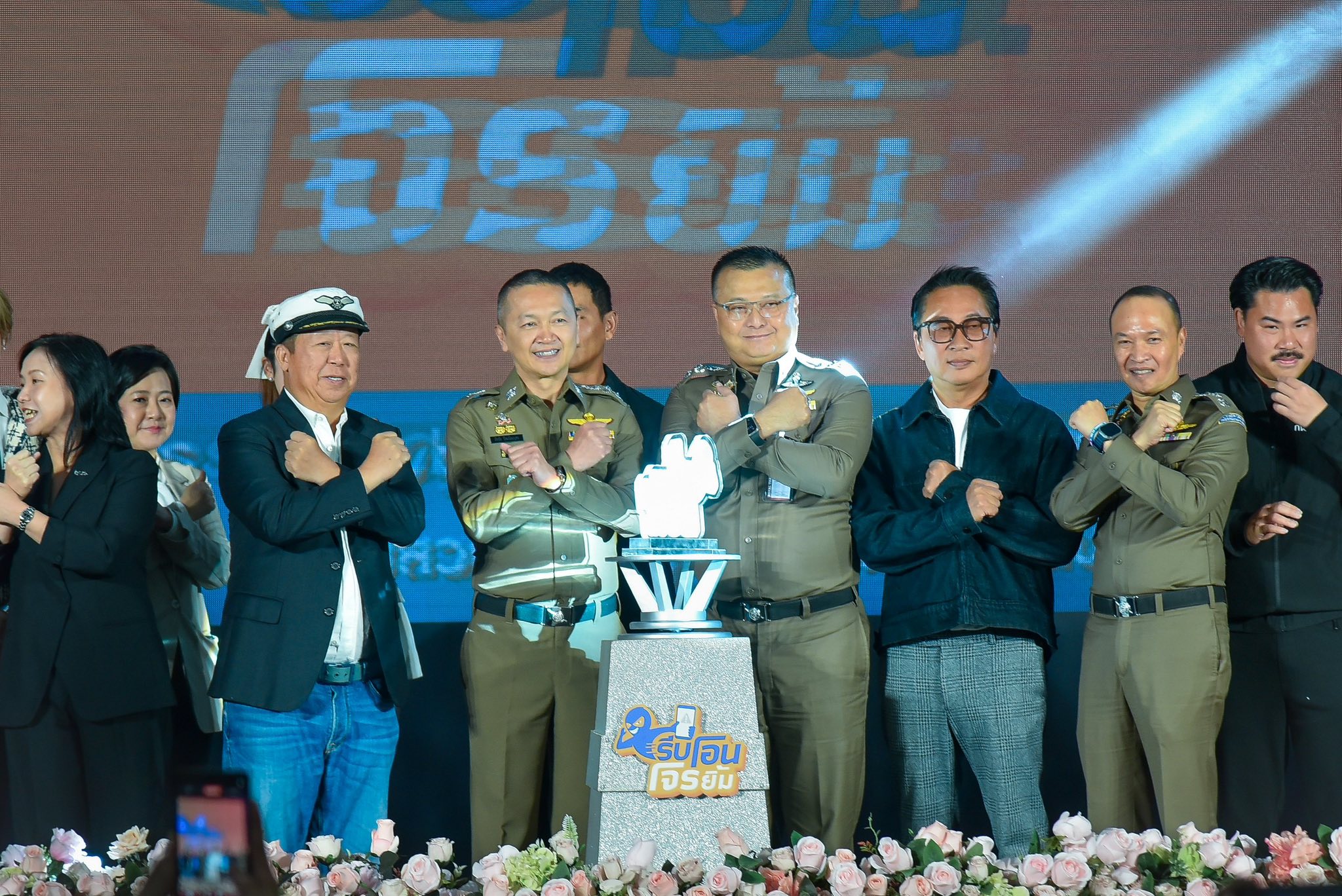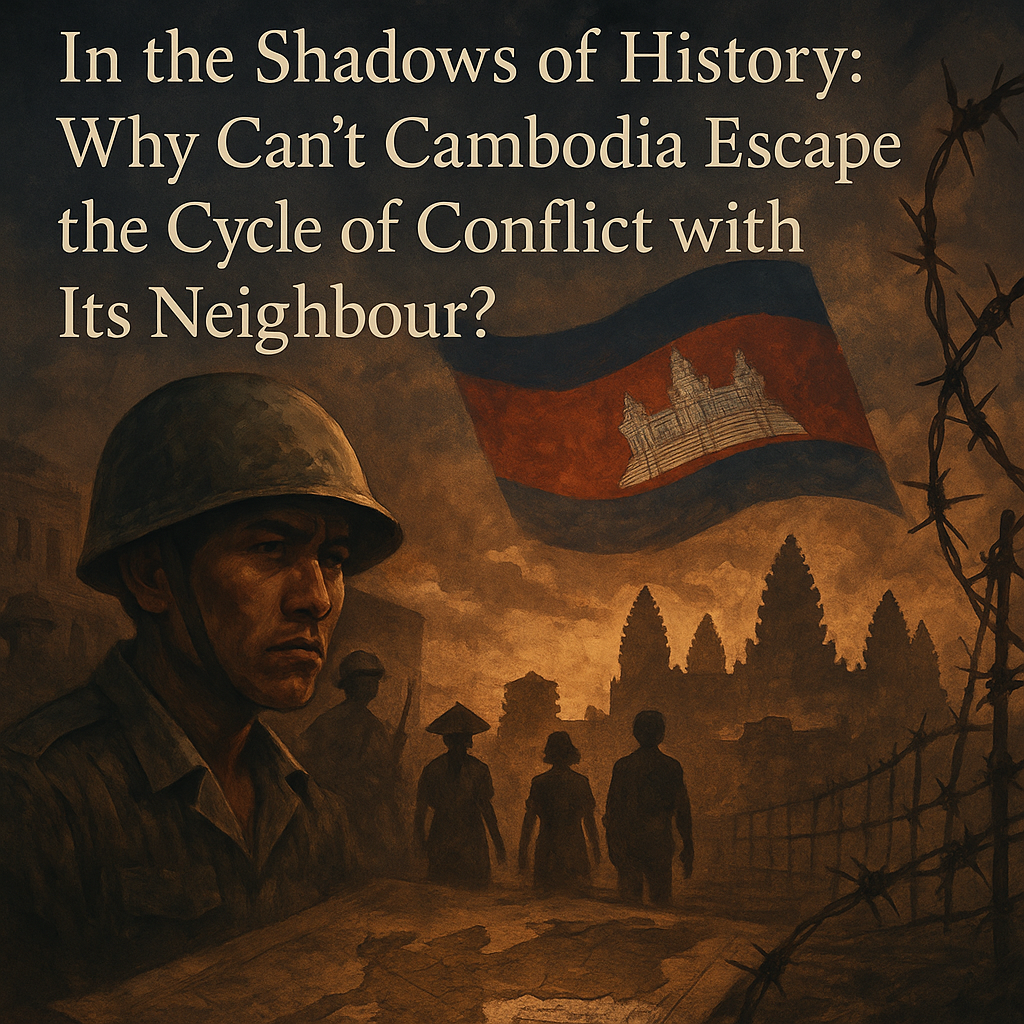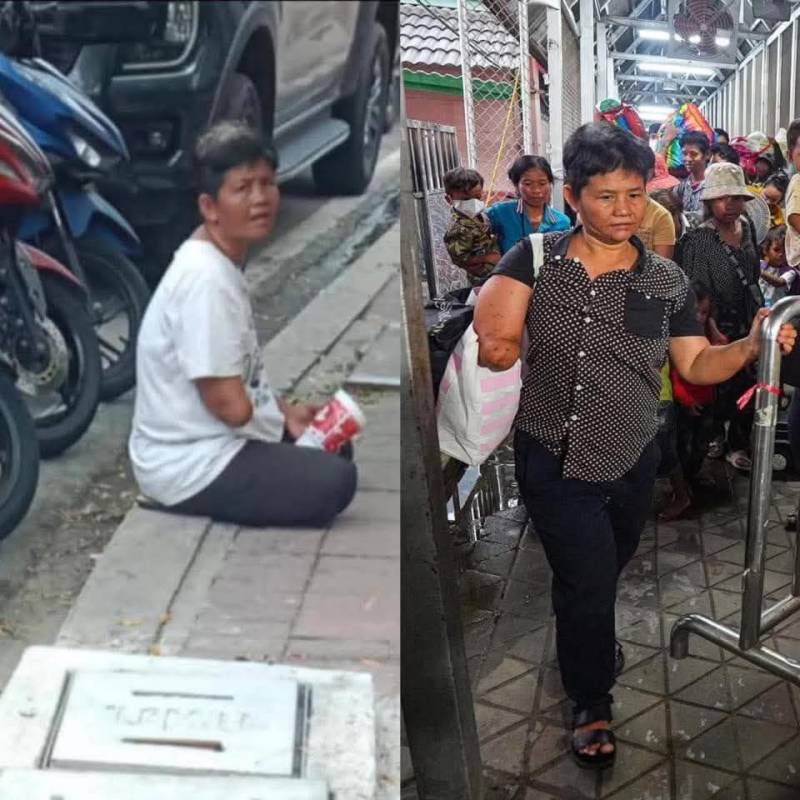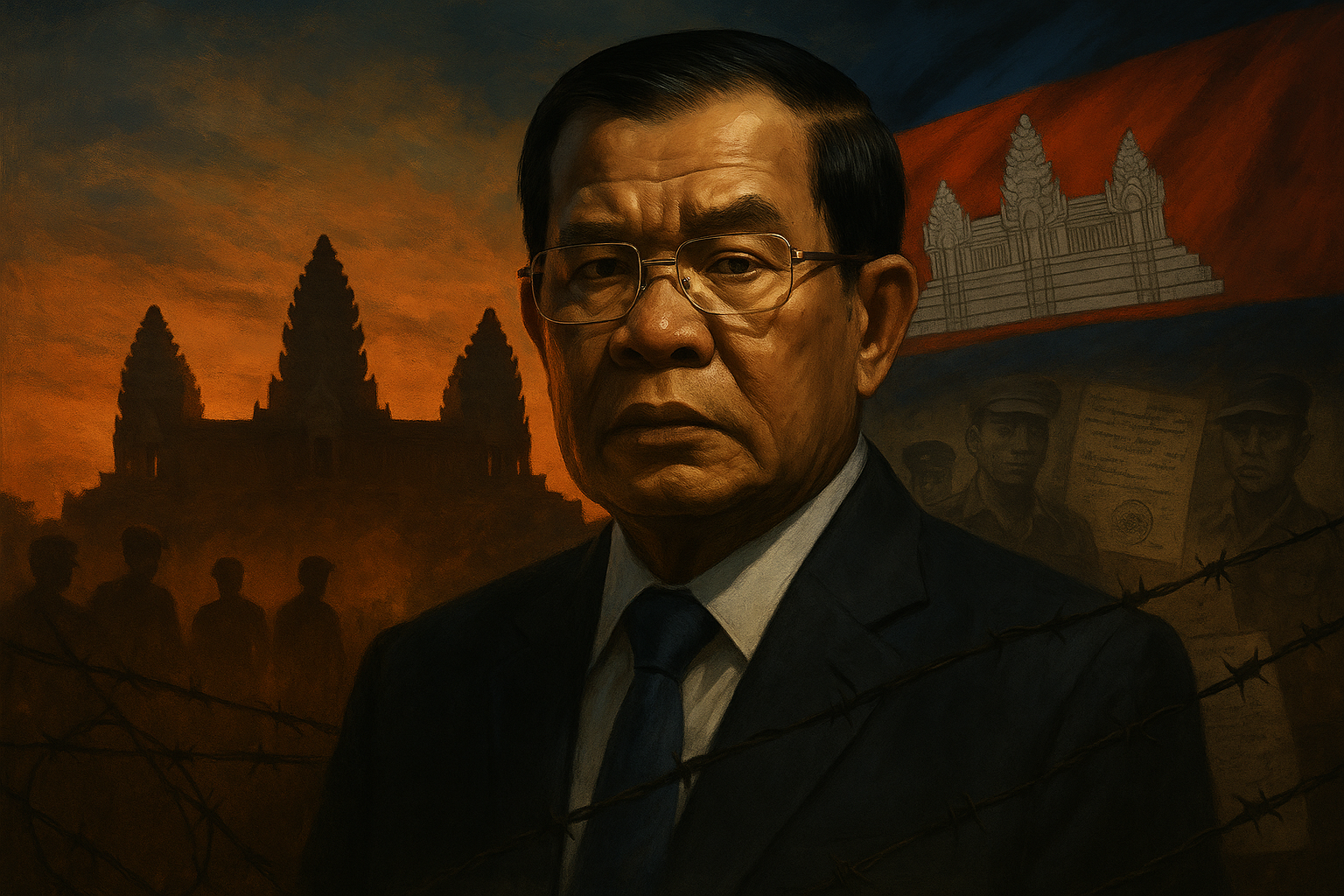World News
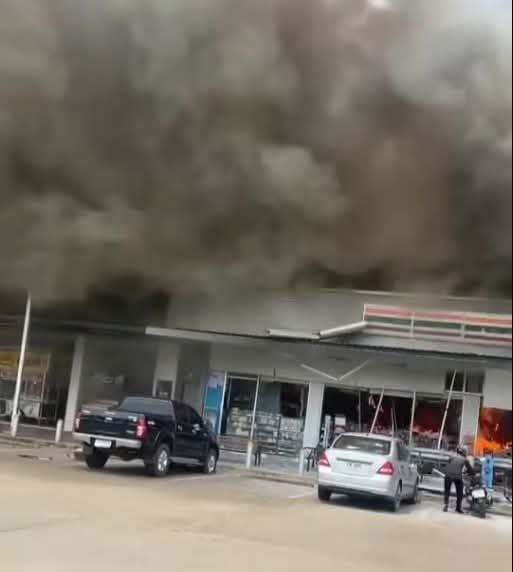
Thai-Cambodian Border Clash
Thai-Cambodian Border Clash On July 24, 2025, tensions escalated along the Thai-Cambodian border, particularly in Kantharalak District, Sisaket Province, where clashes were reported between the two militaries. Cambodian BM21 Rocket Hits Gas Station Store At around 1:40 PM, residents of Ban Phue heard three loud artillery explosions before a fire broke out at a convenience store located within a gas station. The fire is believed to have been caused by a Cambodian BM21 rocket. The incident injured many students and local residents. Emergency responders and military personnel rushed to assist the injured and extinguish the fire promptly. 2nd Army Region Confirms Incident Thailand’s 2nd Army Region confirmed in a statement that a Cambodian BM21 rocket landed in Ban Phue, Kantharalak District. They also noted ongoing clashes in several border areas. Latest Developments Over 20 injuries reported, including students. Convenience store and gas station severely damaged. Residents within 5km radius evacuated. Thai authorities preparing a formal diplomatic protest. The situation remains under close watch, with the Thai government and military emphasizing efforts to control the conflict and protect citizens in the affected border regions.
Read More
Thailand to Negotiate Reciprocal Tariff with U.S., Finance Minister Says Transparency and Strategic Lobbying Are Key
Thailand to Negotiate Reciprocal Tariff with U.S., Finance Minister Says Transparency and Strategic Lobbying Are Key Deputy Prime Minister and Finance Minister Pichai Chunhavajira revealed that Thailand has secured a slot to negotiate the reciprocal tariff issue with the United States. He is scheduled to travel next week for discussions with 2–3 key stakeholders, although further details have not been disclosed at this stage. Minister Pichai also posted on social media about the cost of hiring professional lobbyists. He noted that in general, consultancy fees in the U.S. range from USD 20,000 to 300,000 per month, depending on the scope and complexity of the services. However, in the case of reciprocal tariffs—a highly complex and urgent matter involving substantial trade value—specialized firms with strong policy-level connections in the U.S. government may charge significantly higher fees. “I assure full transparency and accountability. In the U.S., such contracts must be publicly disclosed via the Department of Justice’s website. Without the right representatives, the right strategy, and a well-equipped team that understands the U.S. system, Thailand risks losing its market share, disrupting exports, and harming farmers and entrepreneurs,” said Pichai.
Read More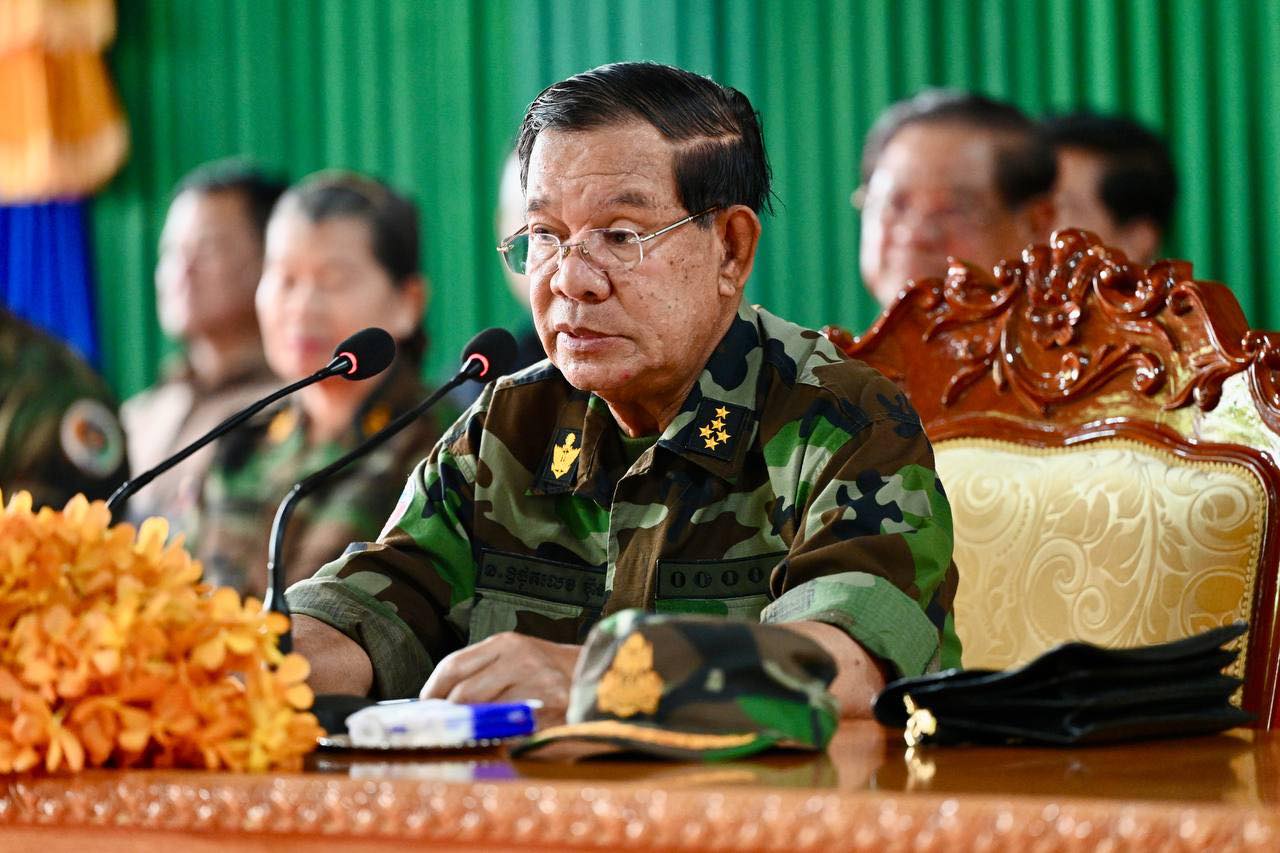
Thai PM Paetongtarn Visits Sa Kaeo Border Amid Cambodia’s Military Mobilization
Thai PM Paetongtarn Visits Sa Kaeo Border Amid Cambodia’s Military Mobilization June 26, 2025 – The Thai-Cambodian border has once again drawn attention as Thai Prime Minister Paetongtarn Shinawatra visited Sa Kaeo province to assess the impact of recent border control measures. On the same day, Cambodian Senate President Hun Sen posted images of himself visiting troops near the border in a show of military support. PM Paetongtarn Holds High-Level Talks on Cross-Border Impact At 10:15 a.m., the Prime Minister chaired a meeting at Aranyaprathet School’s Chalerm Phrakiat Building in Sa Kaeo. The discussion focused on the socio-economic consequences of the restricted border crossings between Thailand and Cambodia. She was joined by key officials, including Gen. Natthaphon Nakphanich (Deputy Minister of Defense), Wuttikrai Leewiraphan (Permanent Secretary for Commerce), Arsit Sampantarat (Permanent Secretary for Interior), the Governor of Sa Kaeo, and senior military commanders from Region 1. PM Paetongtarn thanked all departments for their hard work and urged them to continue helping affected citizens. She also emphasized the need for transparent communication to prevent misinformation in border communities. Hun Sen Mobilizes Support, Accepts Army Chief Role Coinciding with the Thai PM’s visit, Hun Sen, now President of Cambodia’s Senate, made his first public border inspection in recent years. Dressed in camouflage, he met with soldiers stationed in Samraong District, Oddar Meanchey Province, and listened to briefings from field commanders. “Hun Sen accepted a request to become Chief of the Armed Forces,” said Chea Thirith, his spokesperson, during a military gathering on June 26. “This reflects his full backing for the troops, especially in logistics and defense readiness.” Hun Sen’s Facebook page stated that the Cambodian military is on alert following the May 28 incident where Cambodian troops were allegedly fired upon by Thai forces. Military assets have reportedly been moved to
Read More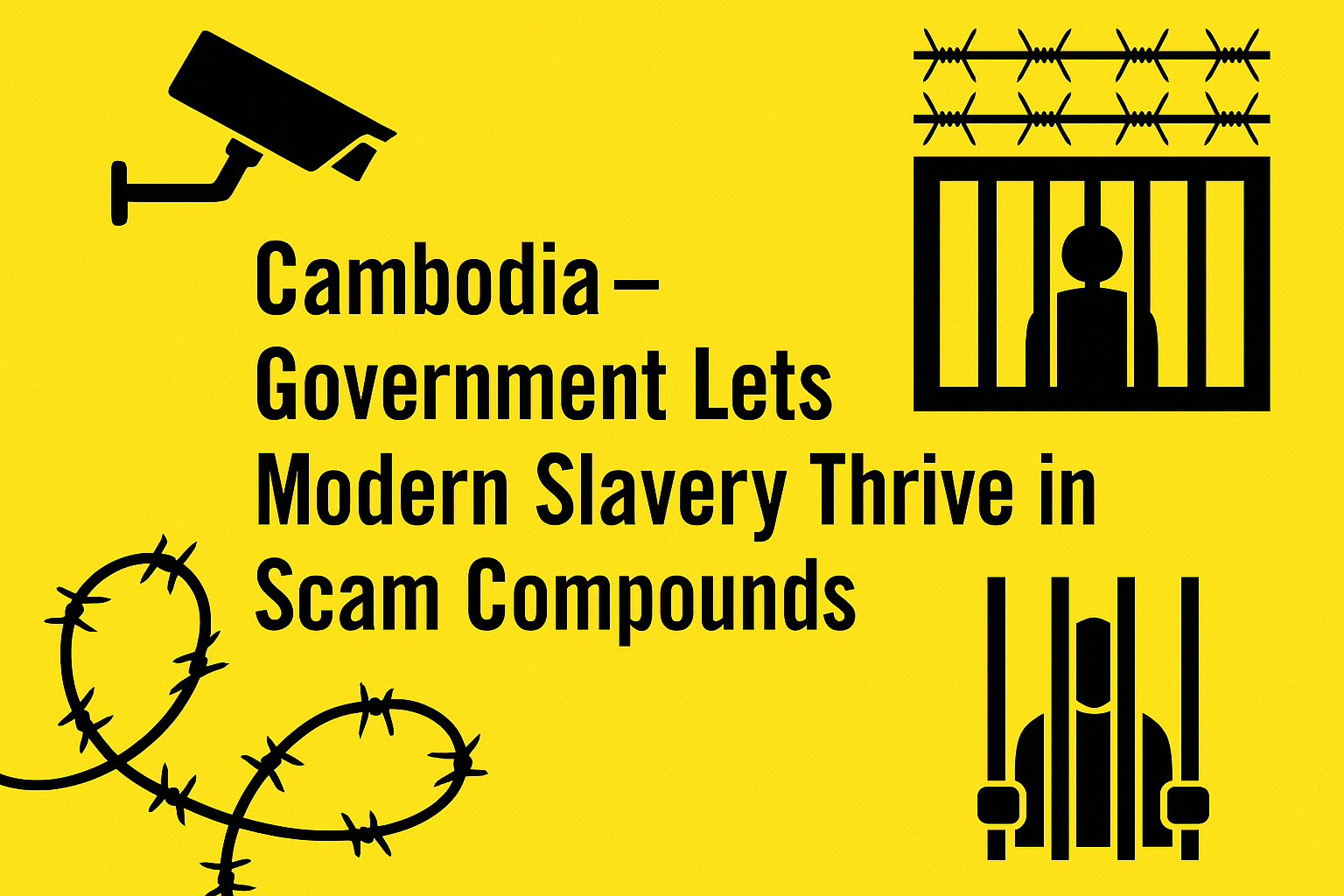
Cambodia – Government Lets Modern Slavery Thrive in Scam Compounds
A shocking new report by Amnesty International reveals that the Cambodian government is turning a blind eye to horrific human rights violations taking place in at least 53 scamming compounds across the country, where victims are trafficked, enslaved, and tortured. “Slavery thrives when governments look away.”— Montse Ferrer, Regional Director, Amnesty International ⚠️ What’s Happening Inside Scam Compounds Victims are lured by fake job ads on Facebook/Instagram Recruits come from Thailand, Vietnam, China, Indonesia, etc. On arrival, they’re locked inside heavily guarded buildings Forced to run online scams (e.g., fake investments, love scams) Many were tortured, beaten, or sold to other compounds At least 9 children were among the victims; some deaths confirmed 🛑 Amnesty’s Accusations Cambodian authorities know and allow the abuses Some police collaborate or accept bribes from compound leaders Police “rescues” are mostly for show, not real enforcement Survivors were punished after seeking help Journalists and rights defenders have been arrested or silenced 📌 Amnesty Calls For Immediate shutdown of all scam compounds Criminal prosecution of all perpetrators Full identification and legal support for victims End of harassment against truth-tellers and the press 🌍 Nationalities Impacted China / Thailand / Vietnam / Indonesia / Malaysia / Bangladesh / Ethiopia / India / Philippines / Taiwan / Kenya / Nepal ที่มา : https://www.amnesty.org/en/latest/news/2025/06/cambodia-government-allows-slavery-torture-flourish-inside-scamming-compounds/
Read More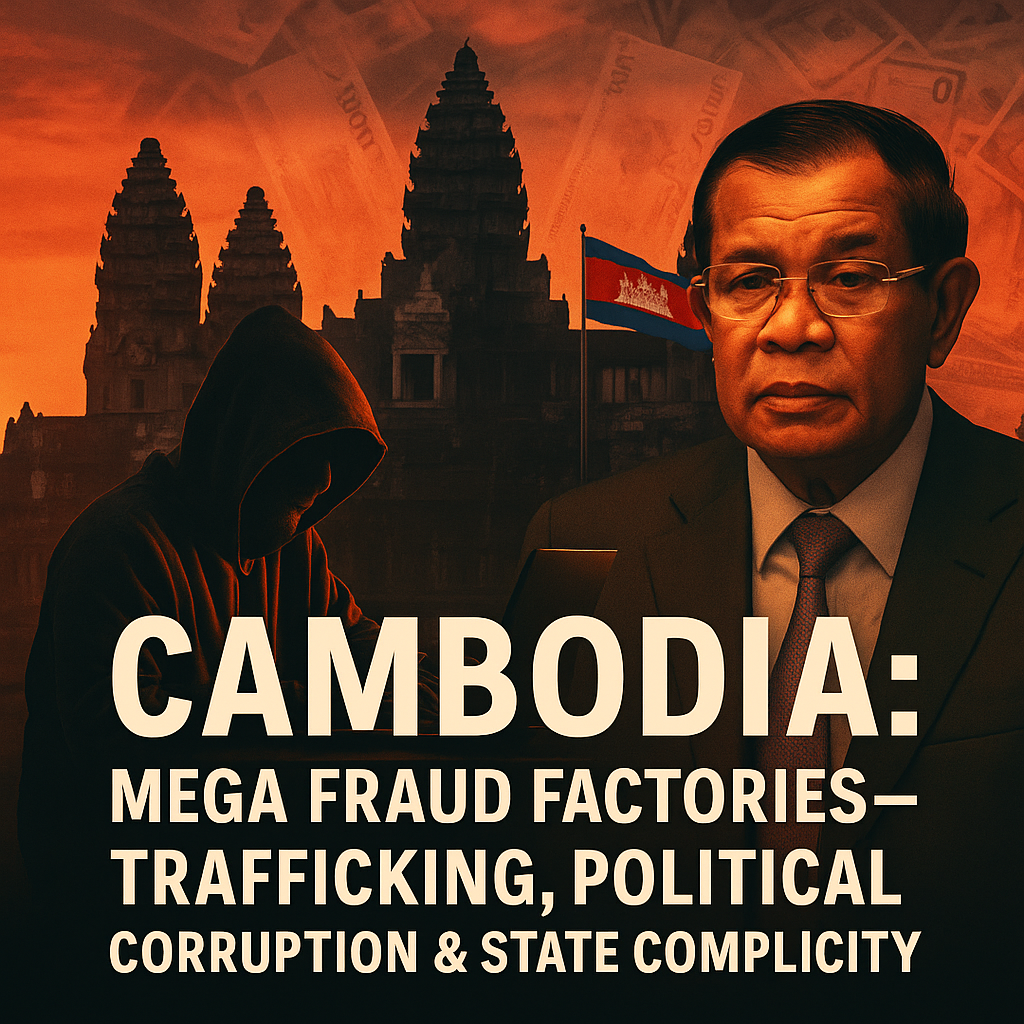
Cambodia: Mega Fraud Factories—Trafficking, Political Corruption & State Complicity
Cambodia: Mega Fraud Factories—Trafficking, Political Corruption & State Complicity UNODC and global reports identify Cambodia as hosting mega fraud factories in key regions like Sihanoukville, Poipet, Phnom Penh, Bavet, Koh Kong, Pursat, and Tbong Khmum. An estimated 100,000–350,000 individuals have been trafficked, their passports confiscated, detained, beaten, or electrocuted if fraud targets are unmet. Key political figures are reportedly complicit: Senator Ly Yong Phat (LYP Group, PM adviser), owner of O‑Smach Resort—sanctioned by the U.S. for forced labor and related abuses. Kok An, owner of Anco Brothers and multiple casinos—accused of laundering funds from scam compounds. Huione Group, tied to Hun To (PM’s cousin), operates shadow banking and crypto platforms handling some US$24 billion in recent years. A May 2025 Humanity Research Consultancy report states, “Cambodian politicians profit from online scam centres,” generating US$19 billion—over 60% of GDP. Pig‑butchering scam operations rely heavily on trafficked workers to establish trust with foreign victims before defrauding them via crypto investment schemes. Facilities include repurposed hotels/casinos, satellite internet (Starlink), and crypto shadow‑banking services that elude regulation. In February 2025, Cambodia formed an Anti‑Online‑Fraud Task Force with Thailand, China, the U.S., and UNODC. However, no significant prosecutions of political figures have been made. Human rights experts advocate a rights‑based response: protecting victims, ending prosecution of victims, safe repatriation, and multi‑jurisdictional investigations. Analytical Summary: Cambodia’s online scam infrastructure is supported by political power and state resources. Effective resolution requires international coordination, transparent investigations into elite complicity, and enforcement actions against the powerful benefiting from this illicit industry.
Read More
